I Dig Sports

John Shepherd speaks with the sports and exercise medicine consultant to gain some clarity on the subject of menstruation
Do coaches discuss the subject of menstruation with their athletes and do athletes know how to deal with their cycles and where they can find out more about retaining optimum health and performance levels? AW spoke with Dr Rebecca Robinson (pictured above after her third place in the 2014 Brighton Marathon) to find out more.
Athletics Weekly: Female athletes are affected by their menstrual cycles but can you tell us in what ways?
Dr Rebecca Robinson: Every female athlete will have a menstrual cycle unique to themselves and its impacts will be individual. We know enough now from research to see some trends. From my work in sport, I see some women for whom the cycle doesn’t have an impact they’re aware of at all, many who find the cycle reassuring that they’re fit and healthy, and some who struggle with heavy or absent periods. At the ends of the age spectrum, being an athletic teen can delay the onset of periods, and after the menopause, some women need support to feel fit and healthy into athletic later life.
AW: Should different types of training be done at different times in the cycle? And does this influence performance?
Dr R: On the first day of bleeding, oestrogen and progesterone hormones are low. Some athletes experience increased muscle soreness due to higher inflammation levels. But muscles adapt well to high intensity at this time and exercise itself can have a beneficial, anti-inflammatory effect.
From the start of a period until ovulation, oestrogen levels rise. Women often find they can train or race hard at this time with more intensity. Just before ovulation, exercise performance may be enhanced. Women have a relatively higher pain threshold at this time too, so this could translate into digging in deep in competition. Around ovulation, the body is under more stress and extra care is needed to ensure recovery and reduce illness risk. A positive energy balance with high carbohydrate intake and adequate sleep is recommended.
After ovulation, the body’s core temperature rises. Blood plasma decreases and relative exercise strain is higher. Moderate efforts are best and it’s important to keep hydrated. A key message is that adaptation to training seems to be better if you have a menstrual cycle than if you don’t. That’s important when it comes to RED-S (relative energy deficiency syndrome – see below).
What is RED-S?
Relative energy deficiency in sport syndrome occurs when athletes are not meeting the energy demands that they need for normal metabolic function plus their sport.
This leads to impaired physiological function of hormones, metabolism, menstrual function, bone health, immunity, protein building, and cardiovascular health amongst other effects.
The consequences of low energy availability shutting off menses on bone health often presents as a stress fracture, and the lack of oestrogen can be a serious risk for osteoporosis (thin and fragile bones).
AW: I have heard that technical work should be avoided at certain times during menstruation and that at other times women may be more prone to benefit from strength work?
Dr R: Hormone changes around the time of a period can affect neuromuscular control – meaning that injuries can be more likely at this time. Just before ovulation, adaptations to strength and high-intensity training are really good. There’s often not a clear-cut right or wrong time to train, but knowing your cycle can certainly be a useful tool when mapping out a training plan.
We do know that athletes suffering from RED-S will have lesser gains from training and lower adaptations. It’s important to highlight that this is the case for men, too, whose testosterone levels can be reduced (see AW’s November 1 issue and Tom Fairbrother’s experiences of the latter).
AW: Are the effects of menstruation different for power and endurance athletes? Many endurance athletes seem to suffer from RED-S whilst power athletes seem to be less affected?
Dr R: Endurance athletics isn’t an aesthetic sport, however, there’s often an emphasis on leanness. Every good coach knows that lighter certainly doesn’t really equal faster beyond a level that is healthy.
However, there can be a tendency for athletes to underfuel, which creates a negative energy balance. That is a real health risk because it can shut off menstrual periods, and this has a detrimental effect on bone health and also on performance, and health in general – and in many ways, from cardiovascular health to mental health.
So, finding the energy balance that’s healthy for you is usually key to performance and getting a regular period is a good marker for this. Of course, it’d be too simple to say this is straightforward for everyone, but if it seems a struggle I would definitely encourage the athlete to seek specialist advice to ensure that their approach is healthy for them.
AW: What should coaches be on the look out for and what do they need to consider?
Dr R: Some athletes can run into problems with RED-S and low energy just because they haven’t got the balance between training and fueling and often a busy life right. Having the conversation about regular menstrual cycles should be important in the coach/athlete relationship, but needs to be done in a healthy, educated, mature way. A great new resource: “health4performance”, can really support athletes, coaches and parents with information and advice. See health4performance.co.uk
Quick wins can be found around nutritional strategies, like fueling directly after training and upping carbohydrate intake, as well as reducing life stress and improving sleep, where possible.
Not all athletes with RED-S have disordered eating, but it’s important to recognise eating disorders because they can have very serious consequences. So, if there are concerns that low energy availability is due to disordered eating, then this is something the athlete should be encouraged to address before they’re ready to train and compete.
There’s more to it than just RED-S. Lots of athletes experience painful periods or heavy bleeding. It’s often a difficult issue to discuss, so I’d really encourage athletes and coaches to visit websites like health4performance and if necessary, remind their GP that sports medicine exists on the NHS as well as in private practice to help athletes here.
AW: What about the pill and other contraceptives? What influences do they have (good or bad)?
Dr R: There has definitely been a move away from the oral contraceptive pill by gynaecologists working in sport and also by sports medicine doctors. We now know the oral contraceptive doesn’t improve bone density so, usually it isn’t the right option for athletes who aren’t getting their period. Furthermore, the pill masks the body’s own hormones, making it difficult to understand the athlete’s own cycle.
Some athletes struggling with RED-S might be advised to have topical hormone replacement therapy with oestrogen and progesterone to provide a withdrawal bleed, but this should be done by a gynaecologist or sports doctor.
Of course, many people do use the pill and other contraception in real life and this can certainly be a safe option, but it’s always advisable to have medical support.
AW: Should females be concerned about competing at certain times during their cycle, and should they influence their cycle to avoid having heavy periods during competition? I know this is a touchy subject.
Dr R: I definitely agree here. But for some athletes for whom premenstrual tension, pain, or heavy bleeding is an issue, taking a wider look at health is essential and medication can be used with care to manipulate cycles.
For athletes who want to use medication to alter the timing of their period, it’s important to get this right a long way out from major competitions. Some symptoms can be helped through non-medical practices, looking at recovery, fuel and natural anti-inflammatory products.
In sports clinics like CHHP, where I work from, we have a multi-disciplinary team. Getting this right for the athlete can involve sports medicine, nutrition, psychology and physiotherapy, so make sure that you get it right for you and your sport.
The knowledge that every woman can compete well at all times in her cycle informs the ‘FITR’ app that can support menstrual tracking for the sporty female – see fitrwoman.com
AW: Are there supplements and nutritional strategies that may be of benefit?
Dr R: I would recommend the FITR app. It can help athletes to adapt training load to their cycle. At different times of the cycle, we women use different food types as fuel (for example, fat versus carbohydrate), so keeping a diary and getting savvy to this can really help, as can knowing at which times you may best adapt to different types of training. For younger athletes, this is great to learn early on, so that they become the expert on their menstrual health for their sport.
Women who have heavy bleeds need to watch their iron status. Iron is found in meats and green leafy vegetables. Supplements can also help – if in doubt, have your levels checked.
AW: Anything else thought relevant?
Dr R: Research is telling us that athletes who get their period end up stronger, faster and actually get better adaptations to training than those who miss theirs, for reasons such as RED-S (there are other reasons why women might not get their cycle and you can be healthy and on a pill or similar, but if in doubt, check).
I’d encourage young athletes that a healthy menstrual cycle is a sure start to a happier and a longer sports career whatever their goals.
Shortcuts that end in stress fractures and heart-break are also sad for us as sports doctors to manage. Taking the first steps if you think you may need help can turn things around quicker than you think.
Tagged under
French Open: Dan Evans joins Kyle Edmund & Cameron Norrie in men's singles main draw
Published in
Tennis
Wednesday, 17 April 2019 04:21
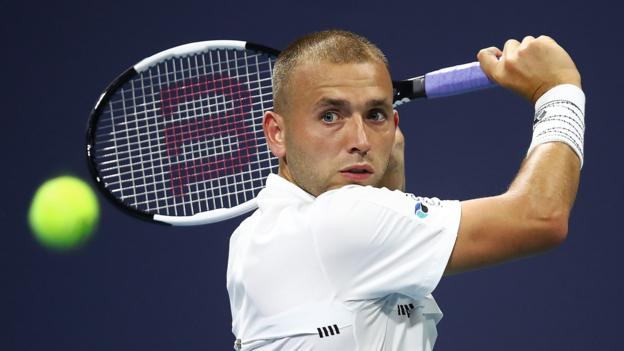
Britain's Dan Evans has earned a place in the main draw at next month's French Open at Roland Garros.
He is joined by compatriots Kyle Edmund and Cameron Norrie in the draw for the men's singles, while two more Britons, Johanna Konta and Katie Boulter, are entered into the women's singles.
It is the first time in two years that world number 89 Evans has made the main draw by ranking.
He returned from a one-year ban for taking cocaine 12 months ago.
The 28-year-old has only once before played in the first round of the French Open, in 2017, when he was beaten by Spain's Tommy Robredo.
Edmund reached the third round in 2018, while Norrie exited in the second. Two-time Grand Slam semi-finalist Konta has never progressed past the first round, while this year marks Boulter's debut in the main draw.
The French Open takes place in Paris between 20 May and 9 June.
Tagged under
Ulster prop Marty Moore ruled out for season with ankle ligament injury
Published in
Rugby
Wednesday, 17 April 2019 05:04
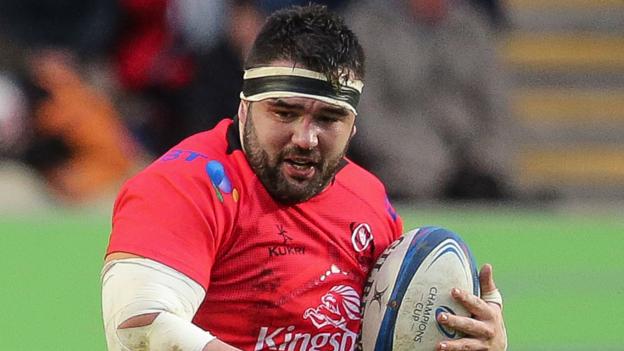
Ulster prop Marty Moore has been ruled out for the remainder of the season with an ankle ligament injury sustained in the win over Edinburgh last weekend.
Ulster revealed on Wednesday that Moore will visit a specialist this week.
Jacob Stockdale suffered a hamstring injury in the same Pro14 game at Murrayfield and his recovery is being "monitored on an ongoing basis".
Utility back Will Addison was already ruled out for the rest of the campaign after undergoing back surgery.
Former Wasps front row Moore hobbled off after just 10 minutes of Friday's game.
Moore will miss Ulster's final regular Pro14 game of the season against Leinster on 27 April, plus more crucially their quarter-final with Connacht at Kingspan Stadium in Belfast on 3/4 May and any additional games the province may play.
Ulster's 29-7 win over Edinburgh, allied with Munster's victory over Treviso, assured Dan McFarland's men of second place in Conference B and a place in the play-offs.
The Irish province are hopeful that skipper Rory Best will have overcome an ankle injury sustained against Leinster in their Champions Cup quarter-final in time to face Connacht.
Tagged under
Bryce Heem: Worcester winger suspended for four weeks for tip tackle
Published in
Rugby
Wednesday, 17 April 2019 02:15
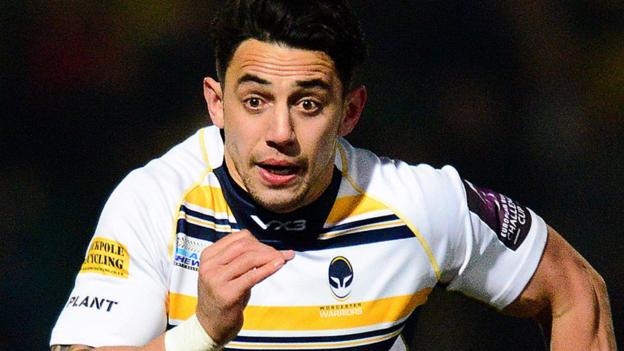
Worcester Warriors winger Bryce Heem will miss the rest of the season after being suspended for a tip tackle on Sale's Paolo Odogwu.
Heem, 30, has been banned for four weeks after contesting the charge at an RFU disciplinary panel hearing.
He was sin-binned for the tackle in the second half of Warriors' 39-17 Premiership win against Sale.
Sale centre Rohan Janse van Rensburg has been banned for a week for striking scrum-half Francois Hougaard.
The ban handed to Heem means he has effectively played his last match for Worcester after revealing in February he would not be renewing his contract at Sixways.
He is tipped to join Top 14 club Toulon in the summer.
South African Van Rensburg, 24, admitted making contact with Hougaard's throat during the first half of the match against Warriors.
His one-week ban means he will be unavailable for Sale's European Challenge Cup semi-final against La Rochelle on Saturday.
Tagged under
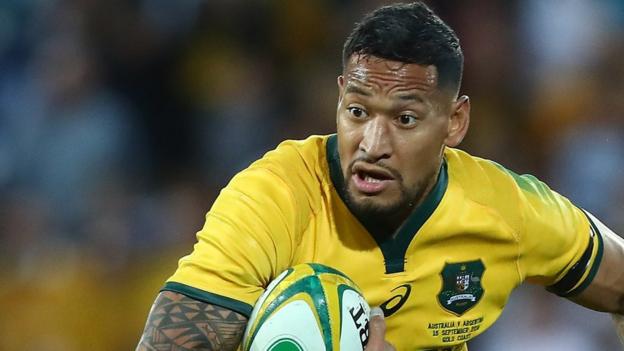
Israel Folau has requested a code of conduct hearing after Rugby Australia ended his contract over a social media post in which he said "hell awaits" gay people.
The 30-year-old had 48 hours to ask for the hearing or accept being sacked.
Rugby Australia chief executive Raelene Castle said Folau's request "was not an unexpected outcome".
She added: "We will now work to confirm a date for the hearing as soon as possible."
Folau has won 73 caps and was expected to play at this year's World Cup in Japan.
"After the date for the hearing is confirmed Rugby Australia and the NSW Rugby Union will make no further comment on the matter until the code of conduct process has concluded," said Castle.
'I live for God now'
Committed Christian Folau last week posted a banner on his Instagram account that read: "Drunks, homosexuals, adulterers, liars, fornicators, thieves, atheists and idolators - Hell awaits you."
The post remains online and on Sunday the player said he was standing by "what the Bible says".
Following a service at the Truth Of Jesus Christ Church, he told the Sydney Morning Herald newspaper: "I share it with love. I can see the other side of the coin where people's reactions are the total opposite to how I'm sharing it.
"First and foremost, I live for God now. Whatever He wants me to do, I believe His plans for me are better than whatever I can think. If that's not to continue on playing, so be it," he added.
"In saying that, obviously I love playing footy and if it goes down that path I'll definitely miss it. But my faith in Jesus Christ is what comes first."
In addition to his rugby union career, Folau has also played professional rugby league and Australian rules football.
Last week, Australian rugby league's governing body ruled out Folau returning to the National Rugby League.
Tagged under
Todd Blackadder: Bath director of rugby to leave at end of season
Published in
Rugby
Wednesday, 17 April 2019 04:56
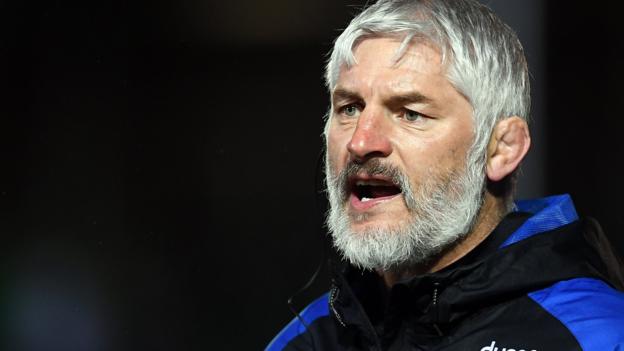
Bath director of rugby Todd Blackadder will leave the Premiership club at the end of the campaign to become head coach at Japanese side Toshiba.
Blackadder signed a contract extension at The Rec until the end of next season in September, but the 47-year-old has been granted an early release.
Former captain Stuart Hooper is expected to take on Blackadder's role.
Bath, who are seventh in the table, said they would confirm their new coaching structure in the coming weeks.
New Zealander Blackadder will depart after Bath's last game of the season with the Somerset side still in contention to reach the play-offs.
They are due to face fellow top-four contenders Sale and Wasps and then strugglers Leicester in their last three regular season Premiership matches.
Blackadder joined Bath in 2016 after seven years as head coach of Canterbury Crusaders.
He led the club to consecutive top six finishes in the Premiership and qualification for the European Champions Cup.
"It's been an honour and a privilege to lead the Blue, Black and White for the past three years," he said.
"I'm incredibly proud of what we have achieved. It might not be silverware, but together we have built strong foundations and I leave knowing that the best is absolutely yet to come."
Hooper, 37, spent eight years as a Bath player before retiring in 2016 and is now their general manager.
Tagged under
Anatomy of a playoff collapse: What happened to the Lightning?
Published in
Hockey
Wednesday, 17 April 2019 05:19
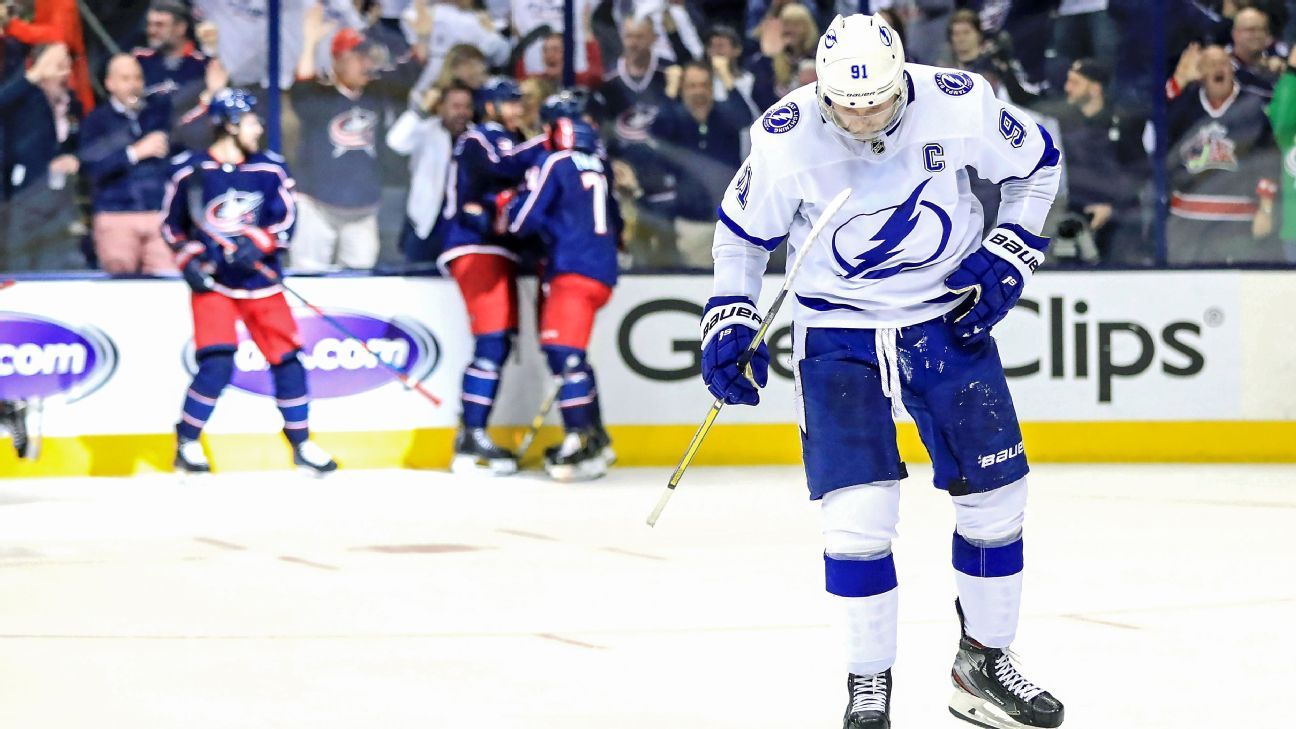
COLUMBUS -- Ryan McDonagh sat in the silent Tampa Bay Lightning dressing room, where his teammates spent a few moments of quiet, frustrated contemplation before leaving for the offseason.
How could this happen? How could a Lightning team that had amassed 128 points and 62 victories -- earning a share of the all-time NHL record for wins -- lose in four swift games to the Columbus Blue Jackets, the last wild card in the Eastern Conference and a team that finished 30 points behind them?
How could a team that seemed destined for a Stanley Cup see it swept aside? How could a group that the Vegas sportsbooks pegged as a minus-400 favorite before the series cash out in four games?
"It's tough to pinpoint one thing," McDonagh said. "We hurt ourselves in a lot of different fashions. Strengths that were keys to us winning in the regular season didn't get it done in this series. They won all of those categories."
What caused this historic playoff collapse, marking the first time in history that the league's top team was swept in the first round in a seven-game series?
Here's the anatomy of the Lightning's loss to Columbus:
Jump ahead: Game 1 mistake | Injuries (and stupidity)
Un-special teams | The Wrath of Bob
They were out-coached | 'It wasn't our time'
The Jackets weren't an 8-seed
Before opening up the corpse of the Lightning to determine the internal causes of their demise, let's exalt the Columbus Blue Jackets with the praise they deserve.
This was not a No. 8 seed. This was the 13th-best team in the NHL based on points, with 98, a higher total than three Western Conference playoff teams in the Dallas Stars (93), Vegas Golden Knights (93) and Colorado Avalanche (90). They were 12th in goals per game (3.12) and 11th in goals-against per game (2.82), outpacing several playoff teams in each category. They were 12th in expected goals percentage (50.87), which was better than six playoff teams.
They were a completely adequate team that was turned into the largest of underdogs by virtue of the Lightning's juggernaut of a regular season, and the Vegas sportsbooks' projections for the series. (The Lightning were minus-400 on the money line to win the series.)
But where the punditry failed was in identifying two trends. First, that the Blue Jackets had been a different team since a Western Canadian road trip that ended on March 24. They had a team meeting that cleared the air on some issues, and that meeting was cited by several players as having gotten them on the right course. They won seven of eight games to close the regular season, giving up two or fewer goals in each victory. (That 6-2 home loss to the Bruins on April 2, in a critical game, threw us all off their scent as a contender.)
The other trend is that this is the third straight season the Jackets have made the playoffs. They went out in five to the Penguins in 2017, but gained experience. They won the first two games in Washington in 2018 and lost the series in six games, but gained more experience.
"The more and more playoff hockey you play, the more and more you feel comfortable in situations that you're put in. It's so important that it's been three years in a row for us. Guys are getting more minutes, more experience in situations and with surges. Hopefully, you're ready for that. It's not new to you," Blue Jackets coach John Tortorella said.
So it wasn't new for the Jackets to start the series well on the road, and perhaps they learned a thing or two about protecting that series lead on home ice after last postseason.
In Game 1, the Lightning tried to win 8-0 instead of 3-0
The Blue Jackets were a punchline after one period of Game 1 in Tampa. They were down 3-0 as the Lightning tied a franchise postseason record for goals in the first period, and they looked thoroughly outmatched. This is what the Lightning did during the regular season: Score early and often (their 102 first-period goals were tied with San Jose for most in the NHL), and win by a large margin (30 of their 62 wins were by three or more goals).
What they quickly discovered is that in the playoffs, opponents don't tumble to the canvas after three quick punches. They stagger around and wait for some mistake or miscue that gets them back into the fight. Which is why McDonagh's ill-advised pass, intercepted by the Blue Jackets and turned into a breakaway goal for Nick Foligno, was such a harbinger of doom.
Nick Foligno breaks out and beats Vasilevskiy to get the @BlueJacketsNHL> �� #StanleyCup>pic.twitter.com/chcW7yVUyE - Sportsnet (@Sportsnet) April 11, 2019
That pinch by Erik Cernak and that pass by McDonagh are the kind of plays you make in the regular season when you think the other guys are already thinking about the next stop on their 82-game journey. When Josh Anderson tips it away to Foligno, the Lightning have five guys below the top of the circles in the attacking zone. And then he just smokes it past Andrei Vasilevskiy.
From that point on, the Jackets took over the game at even strength, outside of a brief return to form from the Lightning to start the third period. They scored a short-handed goal against the Lightning's exalted power-play, and a power-play goal of their own.
Early this season, coach Jon Cooper said that to succeed in the playoffs, "We have to win games 2-1, and not 5-4." The Lightning tried to win Game 1 by, like, 8-0. Instead, one critical mistake got the Jackets back into the fight and helped them score the first of a series of upsets.
The Game 2 hangover
Lightning center Tyler Johnson said that the team had a crisis of confidence during Game 1, getting away from making the plays they had all season. That carried over to Game 2: While the Lightning had the advantage during the game in shot attempts at 5-on-5 and played well in the first period despite giving up two goals, their expected goals percentage for the second (42.39) and third (48.54) was indicative of their failure to carry the play. The Blue Jackets won the game 5-1 thanks to two power-play goals and an emphatic third period in which Riley Nash and Artemi Panarin scored 3:09 apart.
During the entire regular season, the Lightning lost back-to-back games once, in early November when Vasilevskiy was injured. They thought they could walk into Game 2 and snap back into form. They were wrong. Blowing that three-goal lead in the Game 1 loss damaged their psyche for Game 2.
"You're feeling pretty good about yourself when you're up 3-0. And then we gift-wrapped that one for them. The problem was that it carried into Game 2. That was a little bit surprising for us. They scored in the first five minutes, and we didn't respond like we should have," Cooper said.
Injuries (and stupidity)
In Game 3, the Lightning were without two of their most important players, for very different reasons.
Norris Trophy winner Victor Hedman clearly wasn't himself in Games 1 and 2. He was in the negative in shot attempts and goal differential. He was spun like a top by Jackets defenseman David Savard (of all people) on a critical Game 1 goal. He missed the last four games of the regular season with an upper-body injury. He missed Games 3 and 4 with an undisclosed injury.
Nikita Kucherov, the NHL's leading scorer with 128 points and the prohibitive favorite to win the Hart Trophy as league MVP, missed Game 3 while serving a one-game suspension for boarding Jackets defenseman Markus Nutivaara in Game 2. It was a cheap shot on a player in a prone position, delivered out of frustration with Columbus handily ahead in the game.
Did the loss of Kucherov affect the Lightning? Absolutely. They found their offensive game in the third period and trailed by only a goal. Not having Kucherov on the ice to score or set up the equalizer was critical. In that sense, perhaps he is their most valuable player -- glaring in his absence. Petulant, selfish plays that lead to suspensions aren't exactly the stuff of MVPs. (Luckily, the Hart votes are already cast for what is a regular-season award, and Kucherov had a stellar regular season.)
Un-special teams
After Game 4, Kucherov was still trying to figure out what happened to his heralded power play. "No power plays. One PP in two games. It's tough. I don't know what to say," he muttered.
No one does when it comes to the special teams disparity in this series. The Lightning had a power-play percentage of 28.1 in the regular season, which is the highest in NHL history for an 82-game season and the highest overall since the 1987-88 Calgary Flames were at 28.5 percent in an 80-game season. The Lightning had a 33 percent power-play percentage on the road, the highest since the NHL began tracking the stat in 1977.
Against the Blue Jackets? Their power play went 1-for-6, finally converting in Game 4. Part of the problem was not getting enough of them, which was a combination of specious officiating and the Jackets' discipline -- Columbus had the fewest times short-handed in the regular season.
Meanwhile, the Blue Jackets' power play morphed into the mid-1970s Montreal Canadiens, whipping the puck around and in constant motion. They finished 5-for-10 in the series against a Lightning penalty kill that finished tied for first in the NHL. Allowing your opponent a 50 percent conversion rate on the power play is the stuff of which sweeps are made.
The Columbus power play produced the game-winning goal in Games 1 and 2. The game-winner in Game 4 was also technically a special-teams goal, scored 6-on-5 during a delayed penalty.
It can't be stressed enough: The Lightning didn't play horribly at 5-on-5. The Jackets scored eight even-strength goals to Tampa's six. The Bolts had an expected goals percentage of 54.86, and 54.17 percent of the scoring chances over four games. But those extra four goals with the man advantage made all the difference.
"Special teams was huge for us in the season, and let us down in the playoffs. We didn't get the bounces on the penalty kill, and they got confidence on the power play as the series went on," Steven Stamkos said.
Suffice it to say, they really missed Hedman on both of these units.
The Columbus forecheck
Last month, we published an article titled "How the Tampa Bay Lightning can be defeated," long before anyone considered this plausible. One section of it seems particularly prophetic after the Blue Jackets' sweep: That a team playing an effective forechecking game could slow down an offensive juggernaut to a crawl.
The Washington Capitals proved this last season in playing a 1-1-3 trap that bounced the Jackets, Penguins, Lightning and Golden Knights en route to the Stanley Cup. Columbus played a 1-2-2 system against the Lightning that effectively clogged up the neutral zone. One lead forward attempts to disrupt the Tampa Bay puck handler; two other forwards provide neutral zone support to either pressure the puck carrier or take away passing lanes; get through them, and the Jackets' defensemen add another layer of support in front of goalie Sergei Bobrovsky.
"They've been on top of the puck. They've taken away the ice. It's our job to find areas around it. Move the puck and move our feet. Not allow them to get in their setup that often," McDonagh said.
Easier said than done. Until the offensive circus of Game 4, the Jackets had spent the previous eight periods plucking Tampa pucks -- they had 30 takeaways in the series -- and forcing the Lightning to play a chip-and-chase game when entering the offensive zone.
"We got behind and we got away from our identity, which is possessing pucks," Cooper said.
When the Jackets had the puck, they handled it methodically, which is another key to defeating the Lightning: Slowing down the pace. As of March 11, the Jackets were 26th in the NHL in pace of play. The Lightning were 14th.
When they were able to get through the defensive front, there was another problem: Bobrovsky finally became a playoff goalie.
The Wrath of Bob
One of the reasons the Blue Jackets had yet to advance past the first round in the franchise's history was Bobrovsky's rather horrid playoff performance history. In 17 previous playoff games with Columbus, Bobrovsky had a 3.41 goals-against average and an .898 save percentage. Not great, Bob.
But in this postseason, he's been a revelation: a .932 save percentage and a 2.01 goals-against average. Why the improvement?
"I think we have played pretty well in front of him along the way here. But he has, in times of games when we needed a huge save, he's made them," Tortorella said.
Remember that Foligno goal in Game 1? That only matters because Bobrovsky made a huge save on Nikita Kucherov that could have made the game 4-0. Later, he stopped Stamkos when the Bolts' captain could have made it 4-1.
In both games in Columbus, Bobrovsky weathered every offensive flurry the Lightning had, and outplayed Andrei Vasilevskiy across the ice. Vasilevskiy finished the series with a .856 save percentage and a 3.82 goals-against average. Among the many unpredictable facets of this upset, the Blue Jackets getting vastly superior goaltending was high on that list.
"I'm thrilled for him," Tortorella said. "He's got a bit of a burr, and that's a pretty good thing for an athlete to have."
The lack of adversity
One of Cooper's pet theories about the demise of his Lightning is that they couldn't simply flip the switch on for the postseason after coasting for months.
"When you have the amount of points we had, it's a blessing and a curse, in a way. You don't play any meaningful hockey for a long time. Then all of a sudden you have to ramp it up. It's not an excuse, it's reality," Cooper said after Game 4. "That's how it goes: You have a historic regular season and we had a historic playoff."
(Well, yes, it was historic: For the first time in the NHL, a team with the most points in the regular season failed to win a single game in an opening round seven-game series.)
Cooper's argument is that the Blue Jackets rolled into the playoffs having played meaningful games over the previous three weeks, and playing them well: Columbus won seven of eight games, giving up two or fewer goals in each of those victories. Meanwhile, the Lightning lost their confidence in Game 1 and had one bad stretch that cost them their season.
"We couldn't find our game. It's that clear. For six days in April, we couldn't find it," Cooper said. "It's unfortunate, because it puts a blemish on what was one hell of a regular season."
Then again, Cooper was out-coached
On March 26, the Lightning announced a contract extension for Cooper, perhaps with the anticipation that his stock (and the price of it) would rise if and when the team won the Stanley Cup.
"He is the absolute best coach for our hockey team," Lightning general manager Julien BriseBois said at the time.
So ... does that still apply?
Cooper is a brilliant coach. If Barry Trotz doesn't win the Jack Adams for the post-John Tavares revival of the Islanders, Cooper will win it for one of the best regular seasons in NHL history. But in this series against the Blue Jackets, Cooper was out-coached and outmaneuvered by Tortorella. The Jackets committed to their system in ways the Lightning did not. Tactically, their defense trumped Cooper's offense, and the Lightning were slow to adjust to it.
He also made some flat-out mistakes, like failing to identify the psychological damage the Bolts had after Game 1; being unable to get Vasilevskiy off for an extra attacker in a timely manner in Game 3; and failing to make a coach's challenge on the Jackets' first goal in Game 4 for goalie interference, although he would successfully challenge one later on the basis of offside.
"It's little things that haven't happened during the year that snowballed during this series," said Cooper, in an understatement.
The stars didn't shine
The Blue Jackets got impact plays from impact talents. Matt Duchene had three goals and four assists. Artemi Panarin had two goals and three assists. Zach Werenski had five points, and Seth Jones had four points, both of them tallying a game-winning goal. Even Oliver Bjorkstrand's two goals were both game winners, to go with two assists.
The Lightning ... didn't. Stamkos, who had 45 goals in the regular season, had no points and was a minus-5 through three games. Brayden Point, who had 41 goals in the regular season, was scoreless through three, with a minus-2. Kucherov, who led the league with 128 points, didn't score in the first two games of the series and then got himself suspended for Game 3.
All of them hit the scoresheet in Game 4 in an effort to stave off elimination. But the fact the Lightning were in that position is very much a product of their lack of production earlier in the series.
'It wasn't our time'
Kucherov sat in his stall, looking stunned, fielding questions about Game 4. "This sucks, yeah. Not much to say," he said. "It's a playoff. There's no easy team. You have to give them credit. They fought hard. It wasn't our time, I guess."
This brings us to the last surgical exploration of the autopsy: The Lightning, despite all of their success in the regular season and being a statistical steamroller in so many ways, just might not know how to win in the playoffs.
"If you don't accomplish the goal of winning it all, it's a failure. We don't care about what happened in the regular season. We wanted to come in and play well. In that first game, we came out and got the early lead. And then we couldn't gain any momentum in that game. We didn't defend well enough as a team, this entire series," Stamkos said.
So one is left wondering how, then, the Lightning can learn to win in the postseason. How to handle adversity. How to transfer what they did best in the regular season to the postseason.
Maybe it just takes time, like it did for the Blue Jackets.
"I don't know," Cooper said. "It's funny: We're expected to go far this year, and we do nowhere. In 2015, no one expected us to go anywhere, and we went far, with the same core of players," he said. "It's hard to win in this league. It's tough not to be holding up the Stanley Cup at the end, but how many teams have gone through this? They knock at the door and knock at the door and then ... you look at Washington, for example? They had two remarkable years and got bounced in the second round, and the year no one expected them to do anything they won the Stanley Cup."
Changes will come for the Lightning. They have to, after a disaster of this magnitude. But given the core, and given the ages of the core, the window remains wide open to win.
Perhaps one day, while hoisting the Cup, the Lightning will think back to how this defeat was a formative moment. Or, perhaps, they'll think back to what might have been, as one of the greatest regular-season teams in NHL history saw its postseason last only four frustrating games.
Tagged under
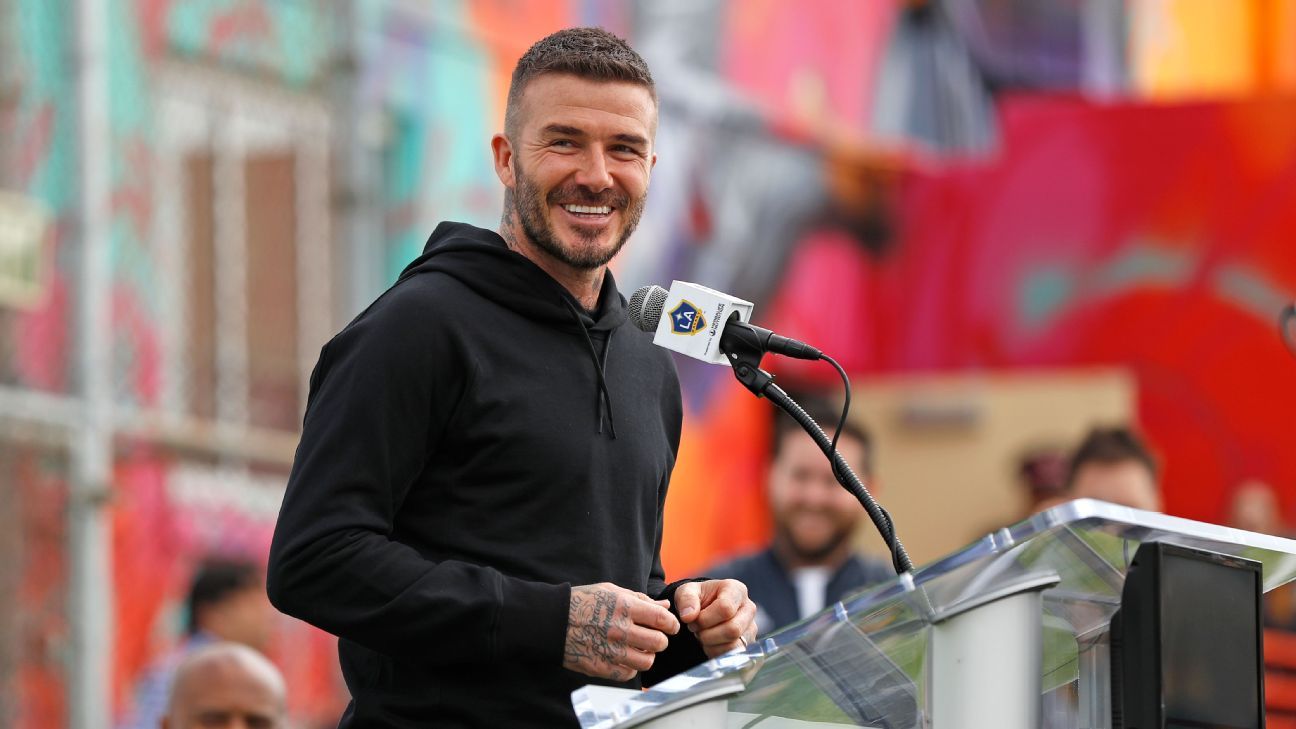
David Beckham's five-year quest to bring an MLS team to South Florida has encountered another obstacle in the form of a lawsuit that could at least delay its efforts to redevelop Fort Lauderdale's Lockhart Stadium.
Beckham, his partners and Inter Miami CF won approval from the City of Ft. Lauderdale on April 2 to redevelop Lockhart, a project that would involve demolishing the existing structure, and replacing it with an 18,000-seat venue that, starting next season, will host the team for the first two years of its MLS existence, as well as a training facility. The team is scheduled to begin playing in MLS in 2020.
FXE Futbol has filed a lawsuit against @FTLCityNews and Miami Beckham United (a.k.a. @InterMiamiCF) to obtain a temporary injunction to prevent the demolition of historic #LockhartStadium #SaveLockhart @grantstern pic.twitter.com/ompixJ1zkd
— FXE Futbol (@FXE_Futbol) April 16, 2019
But on Monday, FXE Futbol, whose competing bid proposed a renovation of Lockhart Stadium, filed suit in Broward County court, seeking "expedited and declaratory injunctive relief."
The suit alleges that the City of Ft. Lauderdale failed to adhere to Florida state law as it relates to unsolicited offers for the development of public land by a private entity by not getting "an architect, landscape architect, or an engineer licensed in this state" to review the proposals. State law also requires an "independent analysis" to demonstrate the public-private partnership's cost-effectiveness.
FXE Futbol also accused Inter Miami of falsely stating to the city that the FXE Futbol's proposal wasn't viable because of the "tremendous amount" of asbestos on the site, thus making a renovation unfeasible.
"We can no longer stand on the sidelines while our due process is being violated," said FXE's managing partner, John F. Reynal, in a statement posted by the company on Twitter. "Not only do we believe the ranking was carried out without the proper statutory review, but the subsequent signing of the interim agreement to demolish Lockhart would render our proposal impossible to deliver.
"While we are not asking for preferential treatment, we do demand that we and all future bidders in front of the City of Ft. Lauderdale receive a fair, open review in accordance with the mandated legal process."
Beckham's Miami project was announced with great fanfare back in February of 2014, only to encounter numerous missteps as it related to a stadium site. The group, Miami Beckham United, thought it had secured land in Miami's Overtown neighborhood, only to run into local opposition.
When the ownership group was altered to include MasTec chairman Jorge Mas, the group switched directions and opted for a $1 billion stadium and commercial project on Melreese golf course. Miami commissioners are currently negotiating a 99-year lease.
Tagged under
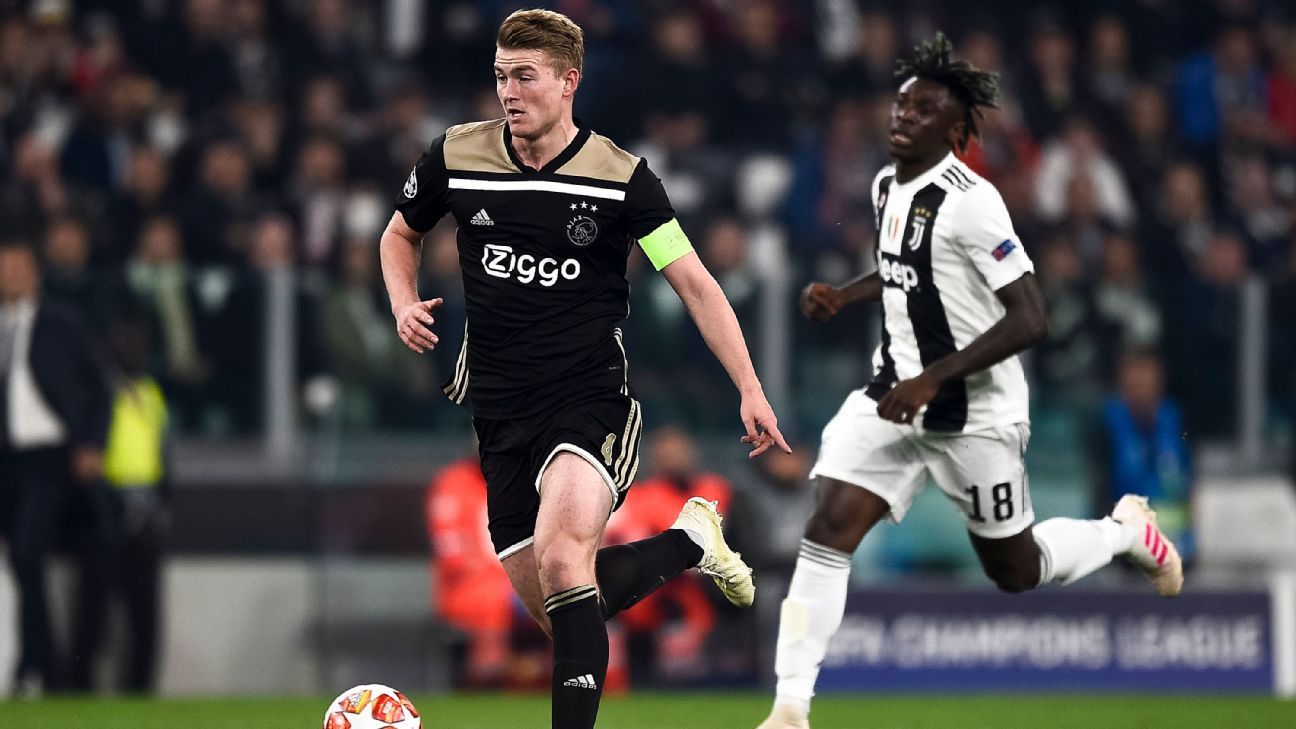
Barcelona are close to reaching an agreement to sign defender Matthijs de Ligt from Ajax, club sources have told ESPN FC.
The La Liga leaders have the situation "under control," according to the sources, and not getting the deal over the line now would provide similar levels of disappointment to last summer when they were turned down by Atletico Madrid forward Antoine Griezmann at the last minute.
Juventus and Bayern Munich are also keen on De Ligt but one source has said the Netherlands international "only wants to listen to Barcelona." The same source added that "as was the case with Frenkie de Jong, Ajax will warn [Barca] if any other clubs make a serious move for [De Ligt]."
De Ligt's agent Mino Raiola is in regular contact with Barca, who value the signing of De Ligt on the same level as the arrival of his Ajax teammate De Jong, who will join the Catalans for €75 million in June.
Barca, though, remain keen to respect the protocol put in place by Ajax, who still have a lot to play for this season and want their players to remain focused on sporting objectives.
Ajax are level with PSV Eindhoven at the top of the Eredivisie table and will face Willem II in the Cup final. They also qualified for the Champions League semifinals for first time since 1997 with De Ligt scoring the winning goal as they knocked out Juventus in Turin.
Barca president Josep Maria Bartomeu told ESPN FC in an exclusive interview he knows what will happen with De Ligt in the summer "but now is not the moment to talk about it."
The club are expecting to pay somewhere close to €80m to get the deal over the line, which sources have said is possible even though they have to be careful with how they manage their finances this summer.
A number of players will leave Camp Nou in the postseason to fund the moves for De Jong, De Ligt and potentially another forward and a left-back. Sources have told ESPN FC the club are looking to make as much as €300 million in sales.
The Spanish champions are well covered in the centre-back positions. Gerard Pique and Clement Lenglet have been in great form this season, while Samuel Umtiti has just returned from injury. Jean-Clair Tobido, a January signing, is also tipped to have a big future in the game.
Thomas Vermaelen, though, will leave for free in the summer and Barca do not plan on exercising an option to make Jeison Murillo's loan deal permanent, creating space for one new defender.
Tagged under
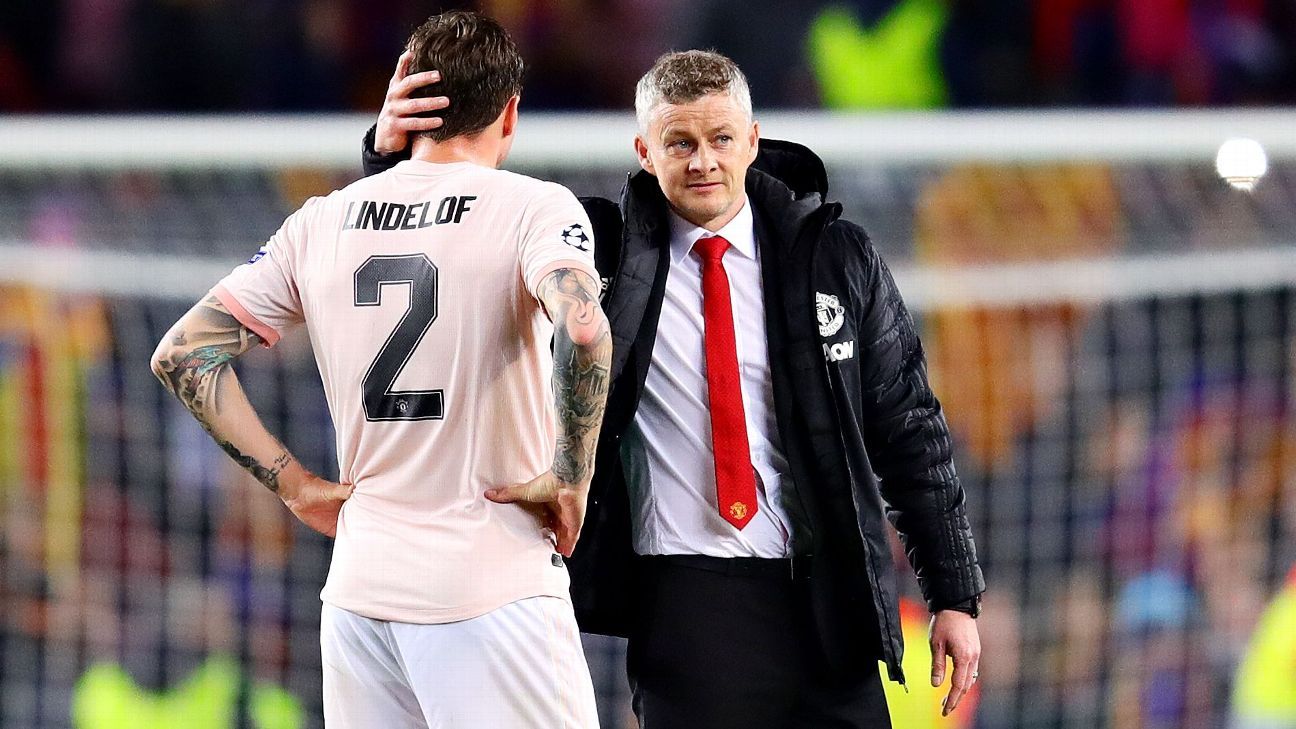
Manchester United manager Ole Gunnar Solskjaer is targeting at least one signing in every area of his squad this summer, sources have told ESPN FC.
Solskjaer said after the chastening Champions League exit to Barcelona on Tuesday night that he is facing a "rebuild" at Old Trafford before United again challenge for top trophies.
The work is set to start at the end of the season with Solskjaer looking to strengthen each area of his team with two new defenders, two midfielders and a forward.
Goalkeeper David De Gea will enter the final year of his deal in the summer but progress over an extension has been slow.
Sources have told ESPN FC the United manager will be backed with significant funds during the summer transfer window and will also be allowed to spend any cash generated by player sales.
Club captain Antonio Valencia is set to lead the exodus after the club decided against triggering a one year extension in the 33-year-old's contract. The Ecuador international has not started a game for United since the 2-0 win over Newcastle on Jan. 2 but, according to sources, is nearing a comeback and could return to the squad for Sunday's trip to Everton.
Ander Herrera is set to leave for Paris Saint-Germain this summer after failing to agree terms on a new contract. Juan Mata is yet to sign a new one-year deal and will become a free agent on June 30 if the stand-off continues.
There are also doubts over the futures of Matteo Darmian, Marcos Rojo, Eric Bailly, Romelu Lukaku and Alexis Sanchez although sources have told ESPN FC there are no plans to sell Paul Pogba despite interest from Real Madrid.
United usually work towards a plan of signing three players during the summer but with more players than usual expected to leave, Solskjaer is set to get special dispensation to bring in more targets.
There is interest in Napoli defender Kalidou Koulibaly, Real Madrid centre-back Raphael Varane, Atletico Madrid midfielder Saul Niguez as well as young English trio Declan Rice, Aaron Wan-Bissaka and Jadon Sancho.
Sources told ESPN FC that after the 3-0 defeat at Camp Nou, Solskjaer told his players he is determined to build a squad capable of reaching Barcelona's level.
"They played very well," said Sanchez, who was applauded onto the pitch on his return to his former club after coming on for the final 10 minutes following his return from a hamstring injury.
"We had very clear chances, but this is football, this is the Champions League, if you get something wrong or fail then the other team gets on top of you. That's what Barcelona do.
"When I came on to the pitch I heard the applause and the truth is I am very happy about this.
"It was a nice moment for me. With the other players we won good things here and I am very happy to return from my injury and I am also very happy with the applause from the crowd."
Tagged under


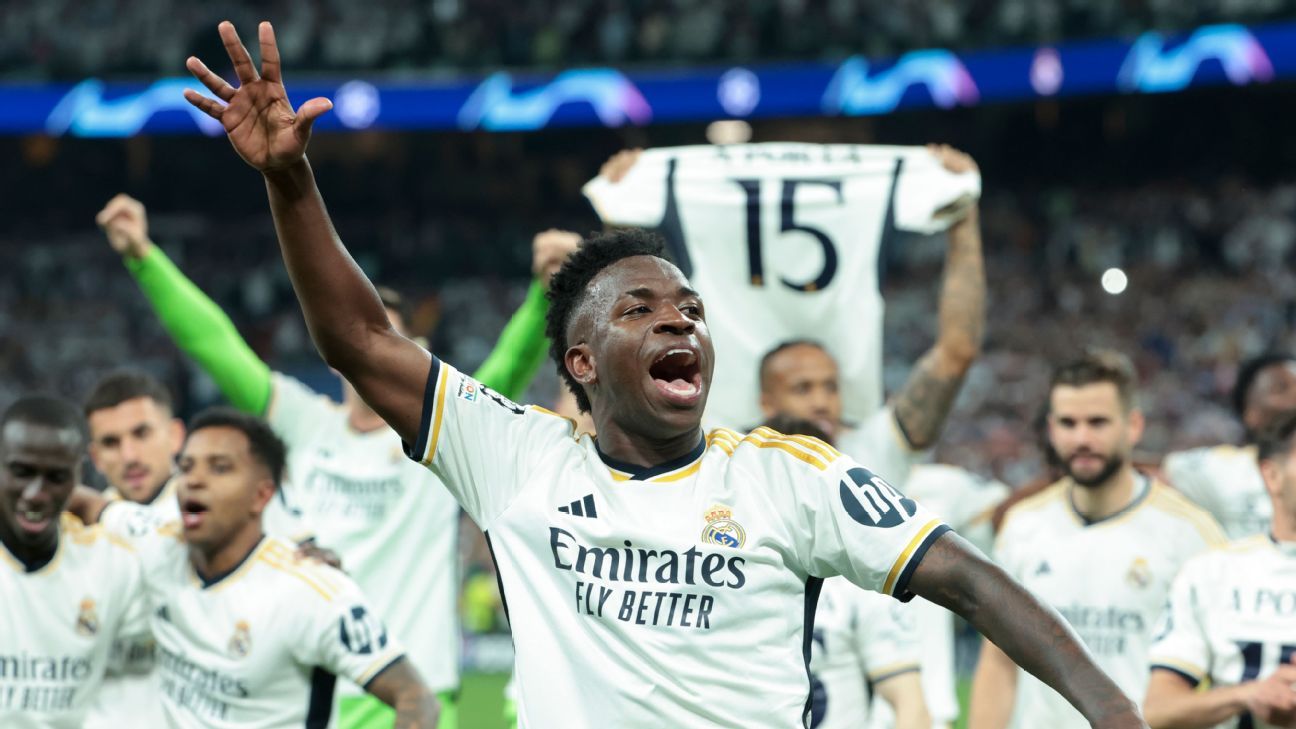
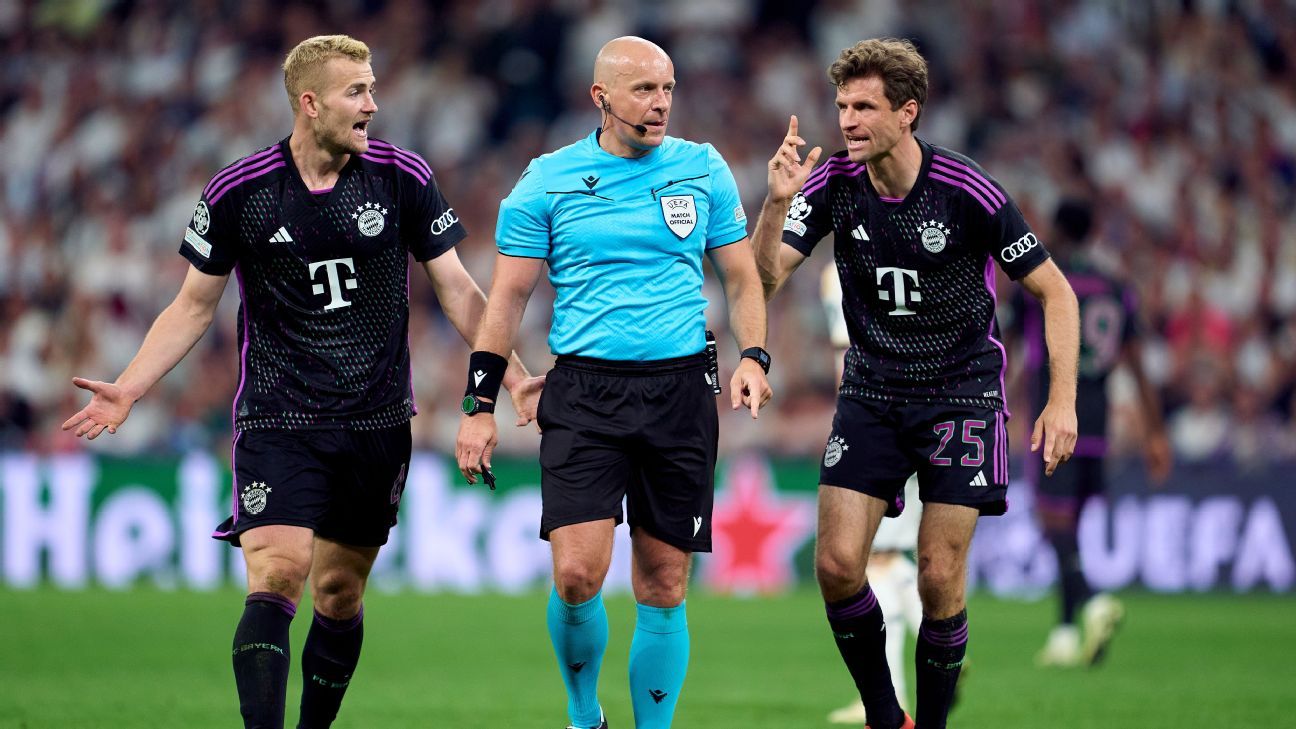
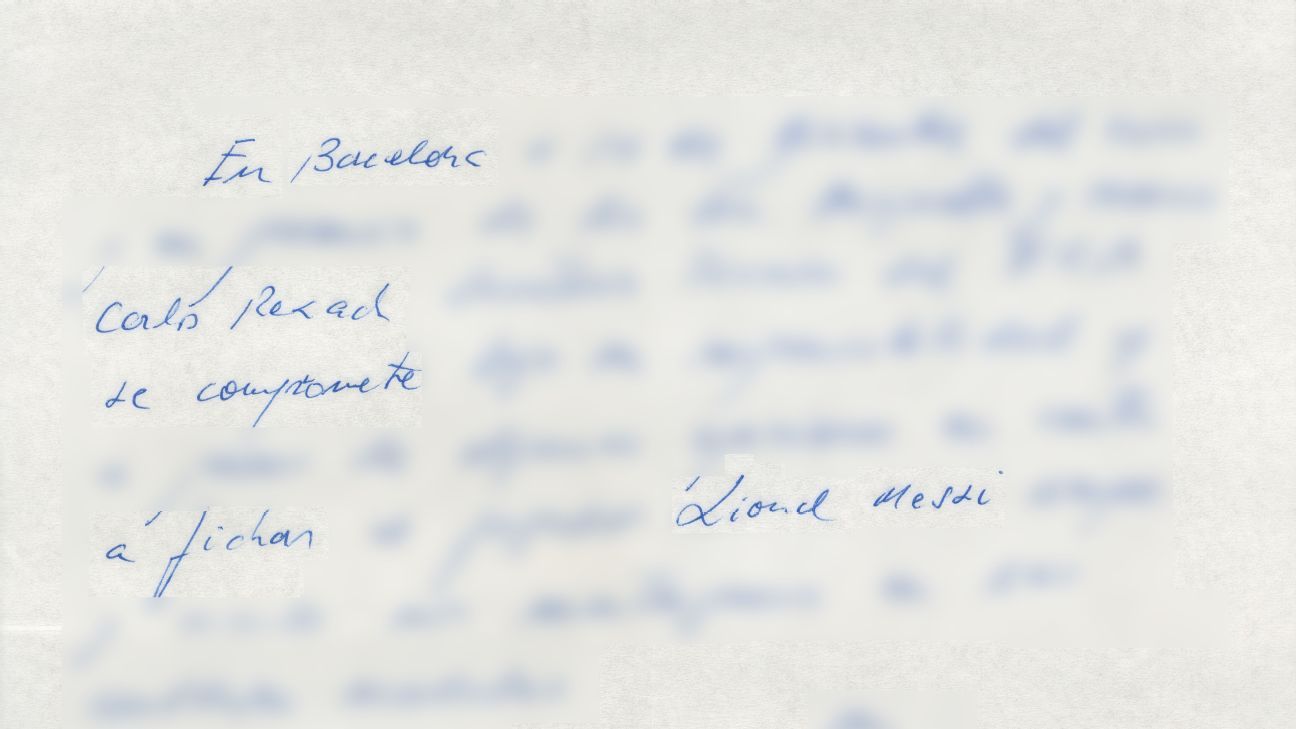





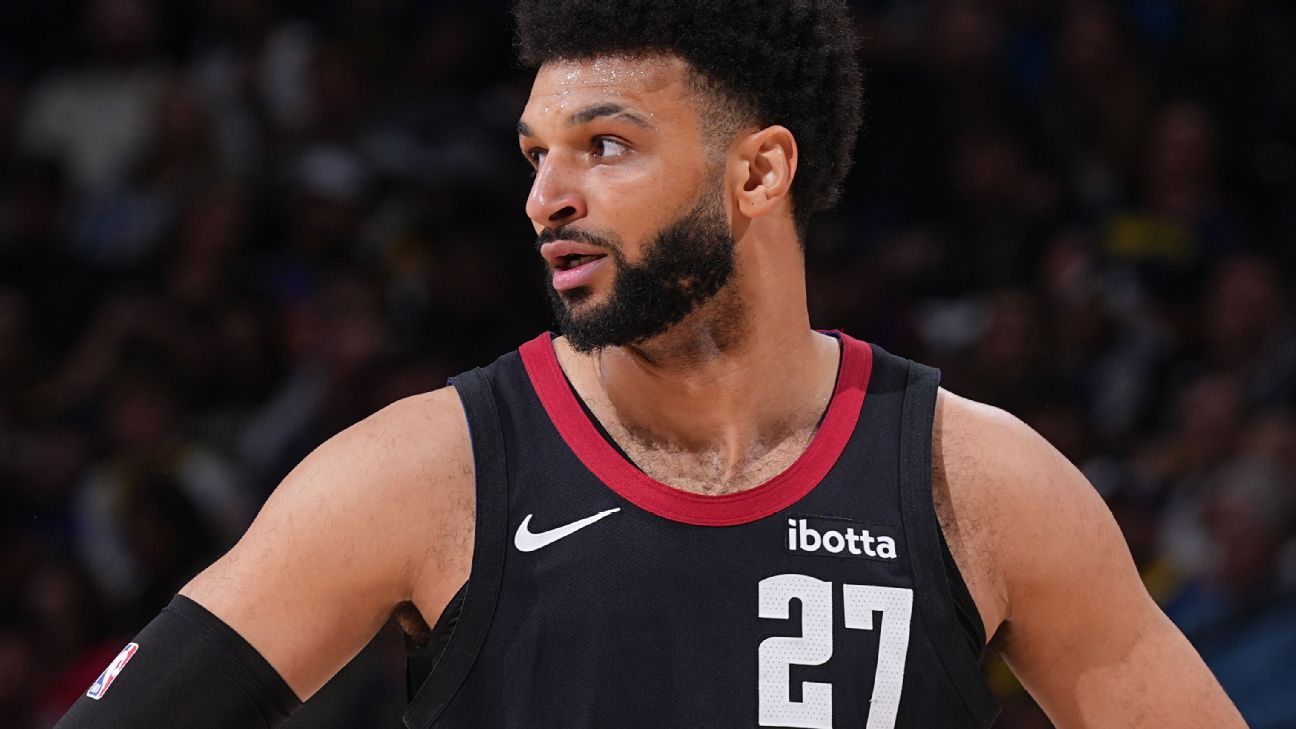
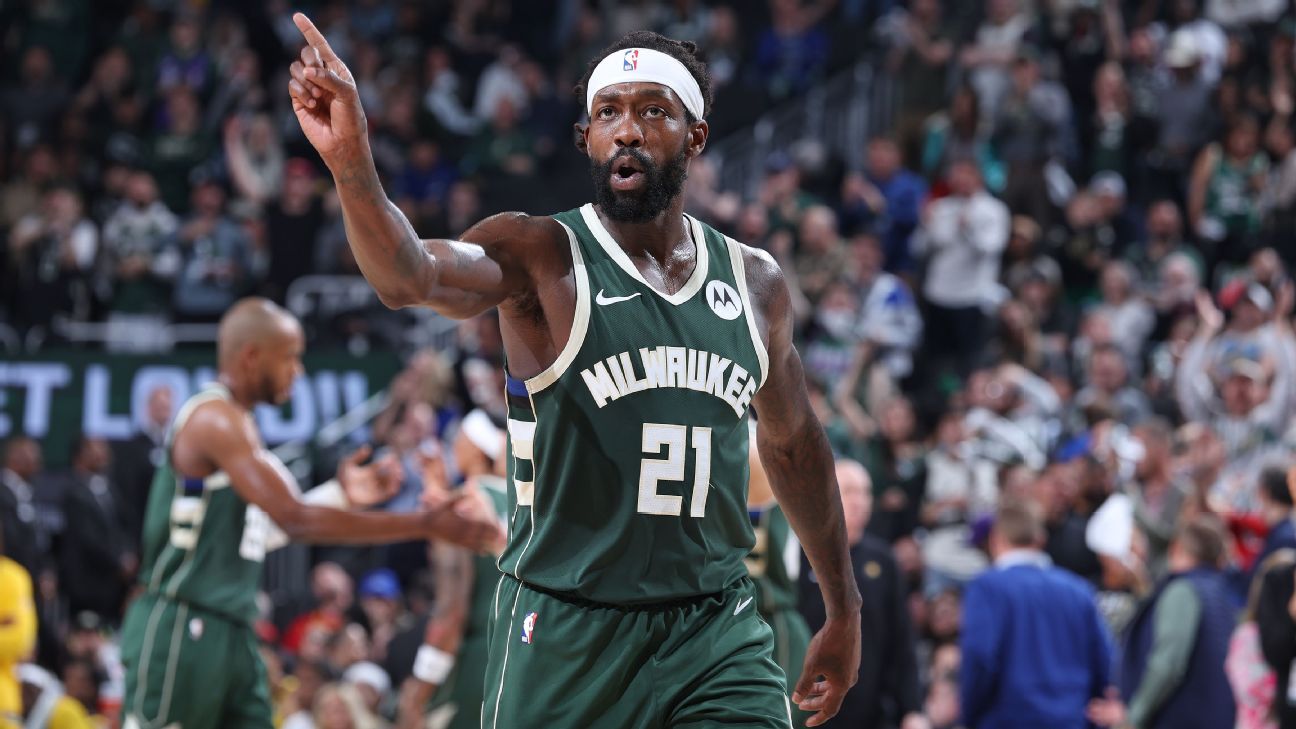
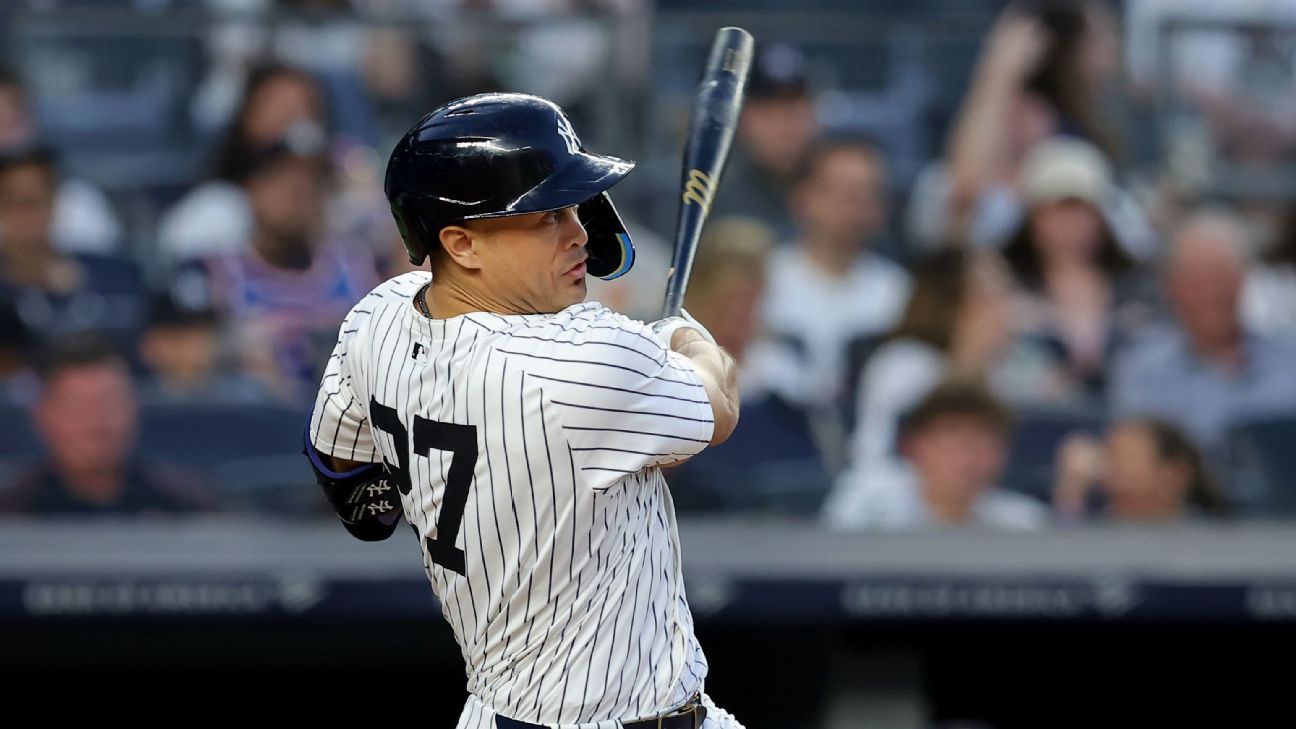
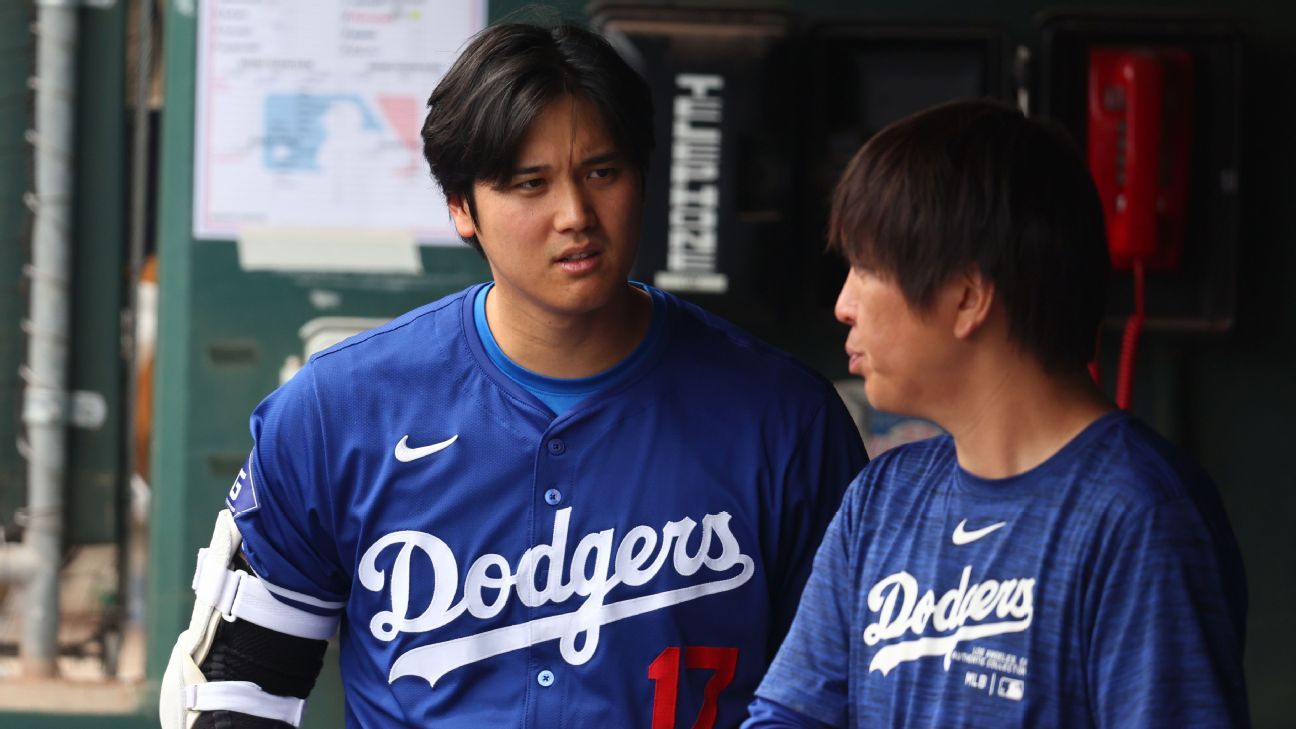

 Phone: (800) 737. 6040
Phone: (800) 737. 6040 Fax: (800) 825 5558
Fax: (800) 825 5558 Website:
Website:  Email:
Email: 






